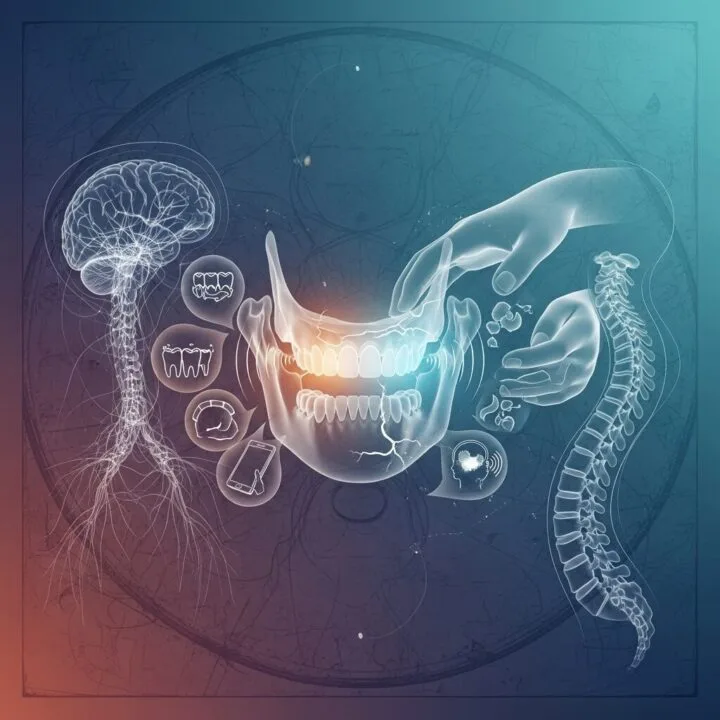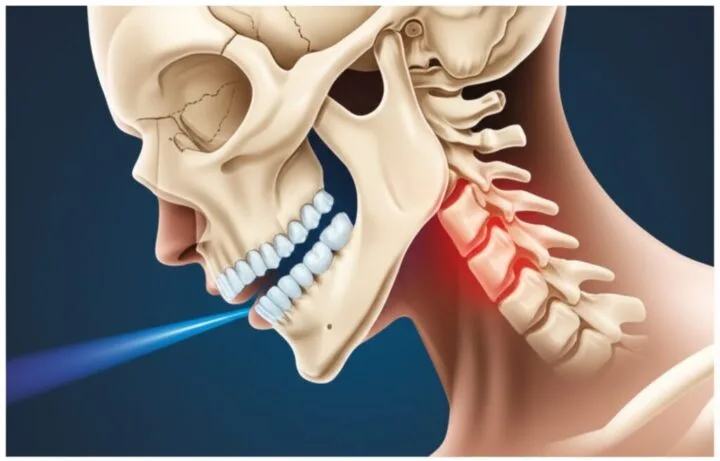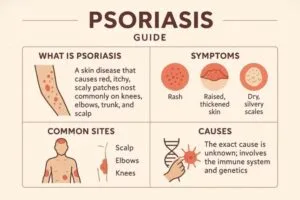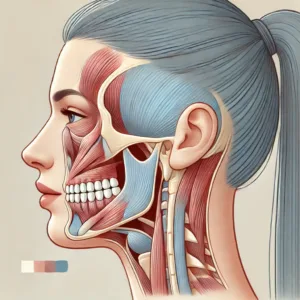Common Habits That make TMJ worse: Expert Insights
Table of Contents

Temporomandibular joint (TMJ) disorders affect millions worldwide, causing pain, discomfort, and reduced quality of life. While various factors contribute to TMJ issues, certain habits can significantly worsen the condition. This comprehensive guide explores seven common behaviors that exacerbate TMJ pain and provides expert advice on how to mitigate their effects. By understanding and addressing these habits, you can take proactive steps towards managing your TMJ discomfort and improving your overall jaw health.
1. Teeth Grinding and Clenching (Bruxism)
Bruxism, or the habitual grinding and clenching of teeth, is a major contributor to TMJ pain. This habit places excessive stress on the jaw joints and surrounding muscles, leading to increased discomfort and potential long-term damage.
How it worsens TMJ:
- Increases muscle tension in the jaw area
- Puts pressure on the temporomandibular joint
- Can lead to tooth wear and enamel damage
Expert tips:
- Use a custom-fitted night guard prescribed by your dentist
- Practice relaxation techniques before bed
- Be mindful of daytime clenching and try to relax your jaw muscles
2. Poor Posture
Surprisingly, your posture plays a significant role in TMJ health. Poor posture, especially forward head posture, can misalign your jaw and increase strain on the TMJ.
How it worsens TMJ:
- Shifts the position of your jaw
- Increases tension in neck and facial muscles
- Can lead to imbalanced jaw movements
Expert tips:
- Practice proper posture, especially when using electronic devices
- Use ergonomic setups for work and leisure activities
- Incorporate neck and shoulder stretches into your daily routine
3. Stress and Anxiety
Psychological factors like stress and anxiety can significantly impact TMJ pain. These emotional states often lead to increased muscle tension and unconscious jaw clenching.
How it worsens TMJ:
- Promotes teeth grinding and jaw clenching
- Increases overall muscle tension in the face and neck
- Can lead to chronic pain patterns
Expert tips:
- Incorporate stress-reduction techniques like meditation or deep breathing
- Consider cognitive-behavioral therapy for stress management
- Engage in regular physical exercise to reduce overall stress levels
4. Chewing Gum Excessively
While seemingly harmless, excessive gum chewing can put undue stress on your TMJ and surrounding muscles.
How it worsens TMJ:
- Overworks the jaw muscles
- Increases joint wear and tear
- Can lead to muscle fatigue and pain
Expert tips:
- Limit or avoid gum chewing
- If necessary, opt for sugar-free gum and chew for shorter periods
- Be mindful of other repetitive jaw movements like nail biting
5. Eating Hard or Chewy Foods
Consuming foods that require excessive chewing or biting force can exacerbate TMJ pain.
How it worsens TMJ:
- Puts additional stress on the jaw joint
- Can cause muscle fatigue
- May lead to acute pain flare-ups
Expert tips:
- Choose softer foods during TMJ flare-ups
- Cut food into smaller, more manageable pieces
- Avoid foods that require wide jaw opening (e.g., large sandwiches)
6. Improper Sleeping Positions
Your sleeping position can have a significant impact on TMJ health, especially if you sleep on your stomach or side with poor neck support.
How it worsens TMJ:
- Can misalign the jaw and neck
- Puts pressure on the TMJ throughout the night
- May lead to morning jaw stiffness and pain
Expert tips:
- Sleep on your back with proper neck support
- If side sleeping, use a supportive pillow to keep your neck aligned
- Avoid stomach sleeping, which can twist the neck and jaw
7. Neglecting Jaw Exercises and Stretches
Failing to perform targeted exercises and stretches for your jaw can lead to muscle imbalances and increased TMJ discomfort.
How it worsens TMJ:
- Allows muscle tension to build up
- Can lead to reduced jaw mobility
- May contribute to chronic pain patterns
Expert tips:
- Incorporate gentle jaw stretches into your daily routine
- Practice controlled jaw opening and closing exercises
- Consult a physical therapist for personalized TMJ exercises
Conclusion
Managing TMJ pain requires a multifaceted approach, and addressing these common habits can significantly improve your symptoms. By being mindful of teeth grinding, maintaining good posture, managing stress, avoiding excessive gum chewing, choosing appropriate foods, optimizing your sleep position, and incorporating jaw exercises, you can take control of your TMJ health. Remember, consistency is key in managing TMJ disorders. If your symptoms persist or worsen, consult with a healthcare professional specializing in TMJ disorders for personalized advice and treatment options.
Take the first step towards alleviating your TMJ pain today by implementing these expert-recommended strategies. Your jaw will thank you for the attention and care.
FAQs
- Q: Can TMJ pain go away on its own?
A: While mild TMJ discomfort may resolve spontaneously, persistent or severe pain often requires targeted management and lifestyle changes. - Q: How long does it take to see improvements in TMJ pain after changing habits?
A: Improvement timelines vary, but many people notice reduced pain within 2-4 weeks of consistently implementing positive changes. - Q: Are there any specific exercises I can do to relieve acute TMJ pain?
A: Gentle jaw stretches, such as controlled opening and closing or side-to-side movements, can help alleviate acute pain. Always perform these exercises slowly and stop if pain increases. - Q: Can diet affect TMJ pain?
A: Yes, a diet rich in anti-inflammatory foods and low in hard or chewy items can help manage TMJ discomfort. - Q: Is it necessary to see a specialist for TMJ pain?
A: If your TMJ pain is severe, persistent, or significantly impacts your quality of life, consulting a TMJ specialist or orofacial pain expert is recommended. - Q: Can stress-reduction techniques really help with TMJ pain?
A: Yes, stress management techniques can significantly reduce TMJ pain by decreasing muscle tension and unconscious jaw clenching. - Q: Are there any technological solutions to help manage TMJ pain?
A: Some apps and devices can help track jaw clenching or remind you to relax your jaw muscles. However, these should be used in conjunction with professional medical advice.
Author Bio:
Dr. Sarah Johnson, DDS, is a board-certified orofacial pain specialist with over 15 years of experience treating TMJ disorders. She completed her residency in Orofacial Pain at the University of California, Los Angeles, and has published numerous peer-reviewed articles on TMJ management. Dr. Johnson is committed to patient education and holistic approaches to jaw health.
References:
Gauer, R. L., & Semidey, M. J. (2015). Diagnosis and treatment of temporomandibular disorders. American family physician, 91(6), 378-386.
Wieckiewicz, M., Boening, K., Wiland, P., Shiau, Y. Y., & Paradowska-Stolarz, A. (2015). Reported concepts for the treatment modalities and pain management of temporomandibular disorders. The Journal of Headache and Pain, 16(1), 106.
Armijo-Olivo, S., Pitance, L., Singh, V., Neto, F., Thie, N., & Michelotti, A. (2016). Effectiveness of manual therapy and therapeutic exercise for temporomandibular disorders: systematic review and meta-analysis. Physical therapy, 96(1), 9-25.
Ohrbach, R., & Dworkin, S. F. (2016). The evolution of TMD diagnosis: past, present, future. Journal of dental research, 95(10), 1093-1101.
Gil-Martínez, A., Paris-Alemany, A., López-de-Uralde-Villanueva, I., & La Touche, R. (2018). Management of pain in patients with temporomandibular disorder (TMD): challenges and solutions. Journal of pain research, 11, 571-587.
Citations:
[1] https://www.ncbi.nlm.nih.gov/pmc/articles/PMC4689239/
[2] https://www.tmjtexas.com/6-bad-habits-that-make-your-tmj-flare-ups-worse
[3] https://my.clevelandclinic.org/health/diseases/15066-temporomandibular-disorders-tmd-overview
[4] https://www.isleepsolutions.com/risk-factors-of-tmj.html
[5] https://www.ncbi.nlm.nih.gov/books/NBK551612/
[6] https://www.mayoclinic.org/diseases-conditions/tmj/symptoms-causes/syc-20350941
[7] https://www.webmd.com/oral-health/temporomandibular-disorders-tmd
[8] https://www.rickardschiropractic.com/jaw-pain-problem-among-pregnant-women/














Post Comment